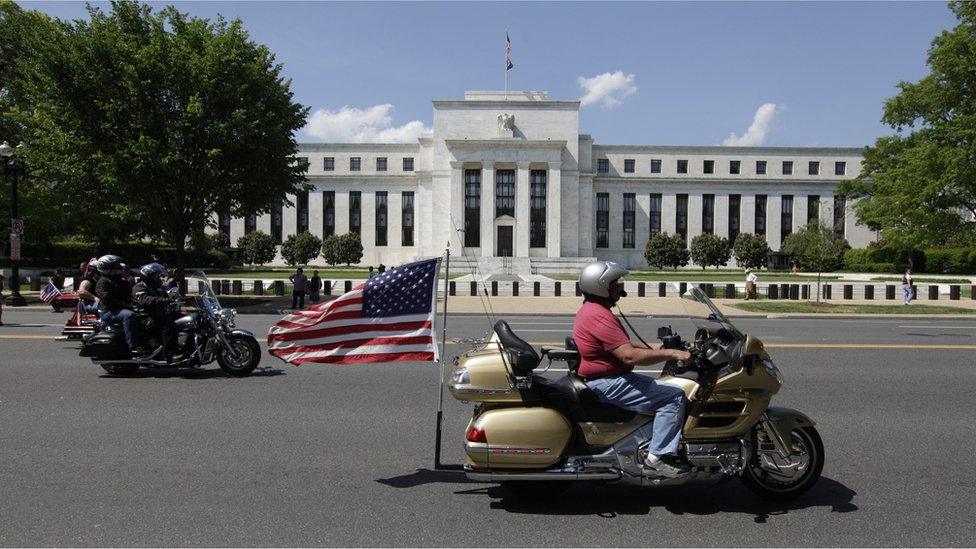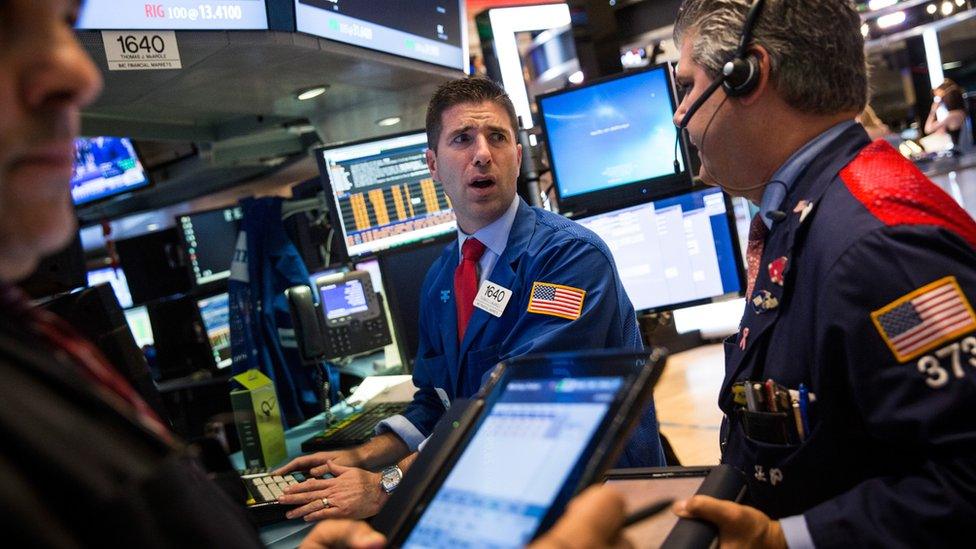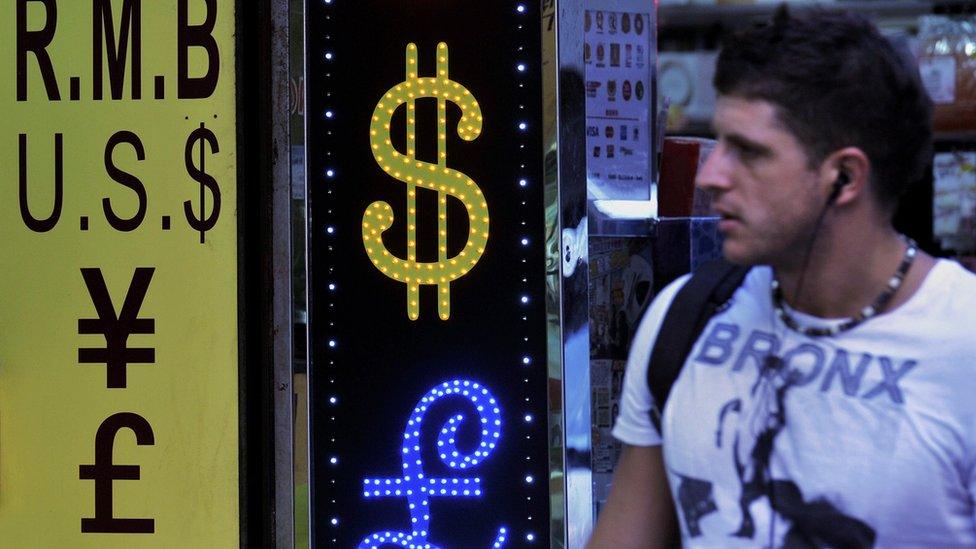When good news is bad news
- Published

The US Federal Reserve Building
The all-important US jobs figures for August are released on 4 September. All-important as they may yet be the deciding factor in whether or not the US Federal Reserve raises interest rates this month, an event which would have profound consequences for the global and as well as the US economy.
For both financial markets and the wider global economy - good news for the US might turn out to be bad news for them.
That dysfunctional state of affairs goes a long way towards explaining the weak pace of the global recovery from recession.
Financial analysts at Vanda Securities reckon that jobs growth of 180,000 in the month would equate to rising US and emerging market stocks, as the prospect of a rate rise receded, but a rise of 250,000 would see asset prices fall. In other news, for the markets at least, "bad news would be good news."
Taking assets prices first, on a simple view, rising employment should be good news for US equities - it heralds more consumer spending and hence stronger demand. Indeed, one could argue that a rise in US interest rates would be a sign that policymakers are optimistic about the US recovery and should even be a sign that corporate profits will continue to rise, boosting stocks.
That's an argument I've heard before from central bankers but one that is rarely popular with market participants.
To understand why higher interest rates are being equated with weaker stock prices, one has to understand that Western stock markets have been as reliant on cheap money for growth as they have on improving corporate performances.
Low interest rates not only make stocks look attractive on a relative basis (the relative returns from stocks appear high when interest rates are low - why keep money in the bank or sick it into bonds when the returns look so low?). In the US there has been an additional - and powerful - link between low borrowing costs and higher equities.
Cheap borrowing has allowed companies to take on debt in order to buy back their own stocks pushing up their price.
Such buy-backs have been a big driver of the large Wall Street rally since 2009.

The economic recovery in the US - and the UK - has not just been accompanied by a big rise in asset prices but even, to an extent, led by that rise.
But an asset price-led recovery underpinned by low interest rates is far from ideal. The fact that good news for the real economy may prove to be bad news for assets gives some clues as to the topsy-turvy world we are living in.
Then there is the global picture.
While a rise in interest rates might be appropriate for the US, it almost certainly isn't for much of the rest of the world where its impact will be felt just as much.
Hence the IMF today calling on Western policymakers to hold their fire on rate rises, external.
Economic performance has diverged across the globe - the US and UK recoveries look robust, Europe's growth is moderate but the big emerging economies look to be in trouble.
As economies have diverged so too has monetary policy - with rate cuts across the developing world this year and further quantitative easing (electronically creating money) likely from both the Bank of Japan and the European Central Bank in the months ahead.
All at a time when the US Fed (and possibly the Bank of England) look set to start tightening policy.
That monetary divergence is playing out in the currency markets, where the story of 2015 has been a strengthening US dollar.

While the Fed takes into account conditions abroad when setting policy, it does so in a second order manner - the question it asks isn't "what will a hike do to emerging market economies?" but "how would a slowdown in emerging markets affect the US?"
Given the Fed is the United States' central bank and not the world's (even if its policy has a major global impact] this is fair enough question.
But it goes to the heart of one of the factors that led to the crisis of 2008 - the lack of global policy co-ordination.
The monetary, fiscal, trade and exchange rate policies of each country can have a major impact on its neighbours.
But with each country setting policy in its own (often short-term) interest, the bigger picture can be, to say the least, sub-optimal.
The global economy suffers from a lack of co-ordination and co-operation. The mechanisms to make it work simply don't exist.
Even in the eurozone - an example of a dozen-and-a-half countries choosing to pool their economic sovereignty - the toolkit is bare.
Debtor states - such as Greece or Spain - that run into trouble can be forced, through strict conditionality on loans, to make changes to their policy, but the creditor states (such as Germany) are subject to just an attempt at moral persuasion.
Even though it takes both a debtor and creditor to make a debt problem happen.
A 0.25% rise in US interest rates is highly unlikely to derail the world recovery.
But when good news is bad news, you know there is a bigger problem.